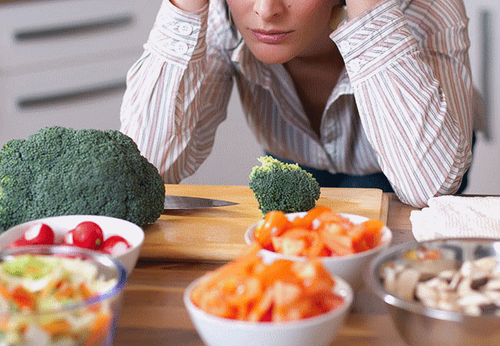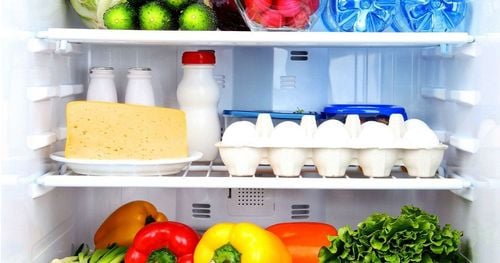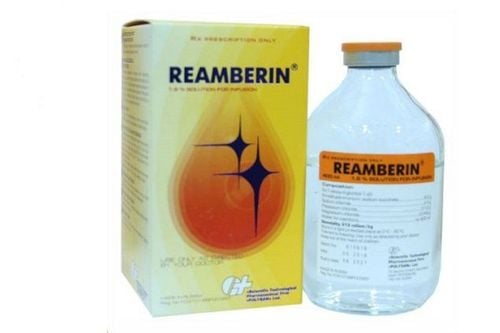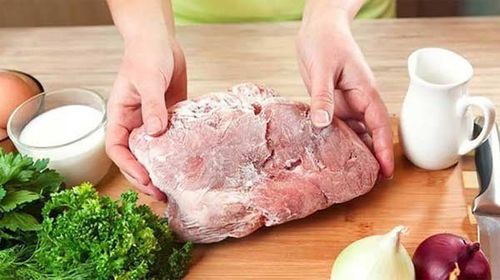This is an automatically translated article.
A refrigerator is a technological device that uses intelligent controls to ensure that the humidity, light and temperature are always at optimal levels for storing food. By learning how to store food in the appropriate areas of the refrigerator, you can preserve nutrients and ensure food does not spoil. So what is the appropriate temperature for storing food in the refrigerator and freezer?
1. Food storage temperatures in refrigerators and freezers
Most people will throw away leftovers after each meal for fear that they will spoil and can affect health, but doing this is extremely wasteful and expensive. Fortunately, technology is always evolving and now we can safely preserve food quality and keep it longer by learning a few food preservation tips. There are a few things to keep in mind when storing food, such as: how to handle food safely to prevent foodborne illness, the type of container you use, and how long food usually stays in the fridge or freezer. freezer.
Keep raw meat, poultry and fish away from other foods in the refrigerator so they don't contaminate processed foods. (This is probably why many refrigerators have a meat compartment at the bottom of the cabinet.) If your refrigerator doesn't have a separate compartment for fresh produce, store uncooked meat/seafood on the lowest shelf so their juices don't leak onto other foods.) In addition, housewives also need to pay attention to always wash their hands before and after handling food, whether cooked or refrigerated for preservation.
Refrigerator and freezer temperature: The refrigerator temperature must be at least 4°C or less for the food compartment and the freezer compartment is minus 17°C or below. Food storage time: Freeze or refrigerate perishable foods within two hours or one hour if the temperature is above 32°C. Do not eat foods that have been refrigerated for more than 4 days. Cooked pizza and meat or poultry can keep for up to three to four days, while lunch meats and egg, tuna or pasta salads can keep for three to five days in the refrigerator.
Containers: Store food in shallow, tight-fitting containers. Glass containers can be convenient because they are easier to check inside and are more environmentally friendly. If storing foods in plastic containers, just check to make sure they are labeled BPA-free, a chemical added to commercial products, including food containers and food items. personal hygiene as dealnews mentioned in "6 best options for food containers". If the number on the recycling symbol on the container has the number "7" it could have BPA in it and be dangerous to the user. If your kitchen is full of food containers, it may be time to cut back on a few foods and leave only the most essential types of containers.
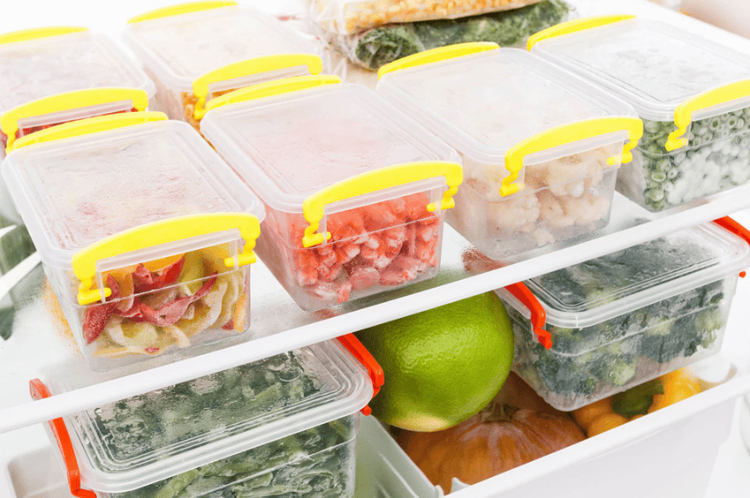
Hộp đựng bảo quản thực phẩm sẽ tốt hơn nếu chúng không chứa BPA
2. Store frozen food properly
2.1. Storing fruits and vegetables Foods such as fruits and vegetables can be difficult to store because some are incompatible when stored together. Because some fruits release ethylene gas, which can cause vegetables to spoil prematurely. Experts recommend avoiding storing these fruits in the fridge: avocados, bananas, nectarines, peaches, pears, plums, and tomatoes.
You can refrigerate apples, apricots, cantaloupe, figs and honey, but do not put them in the vegetable bin/dryer where you can store ethylene-sensitive vegetables.
Speaking of vegetable trays, most standard refrigerators have a vegetable crisper designed to keep products firm and fresh for longer, and also come with humidity and temperature controls. This can be a good place to keep ethylene-sensitive vegetables, as this area is isolated from the rest of the refrigerator. However, do not store fruits and vegetables in sealed bags or containers, as that can speed up decomposition. On the other hand, preservative products like Debbie Meyer green bags can help prolong product life (but their effectiveness and side effects have not been well studied).
2.2. How to properly store eggs? Because there are many types of products made from eggs and eggs need special storage to avoid food poisoning. Essentially, raw eggs in the shell can last a very long time (three to five weeks), while egg-based foods only last a few days.
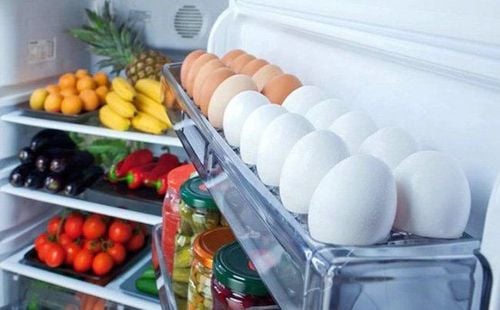
Trứng sống có thể bảo quản được từ 3-5 tuần với điều kiện phù hợp
2.3. Preserving fresh food In the matter of preserving fresh food, we need to keep food in sealed packages to ensure that air cannot enter inside the freezer to help prevent ice from burning, reducing quality. food quantity. If you're not ready to invest in a modern vacuum sealer, an inexpensive alternative is the Reynolds Handi-Vac vacuum sealer, which works on the same principle of removing air from freezer bags. go with. Although it is a bit noisy, this measure can save space and most of the cost. To expertly wrap meat before placing it in the refrigerator or freezer, use good quality freezer paper. Fold the paper over the meat and folds, then continue to fold and press to let the air out. After folding and turning under the ends, tape the freezer compartment. You can fold the paper in half or layer it with aluminum foil or plastic to make sure the air is completely pushed out.
Experts recommend letting bread and other baked goods cool before freezing in a freezer bag so moisture doesn't form ice crystals inside. This also applies to other freshly cooked dishes. Label frozen foods with the date and name of the food, then try to divide foods into serving sizes for easy reheating. Finally, the National Center for Home Food Preservation has a long list of food-specific freezing information, as well as general advice such as foods that don't freeze well (e.g., water) milk sauce), how much space to allow between packaged foods (0.5 inches to 1.5 inches), and freezer management tips like making sure you keep the freezer full for good results best.
Refrigerator or freezer is probably one of the appliances that every family should have. All foods from bread, meat, fish to vegetables, tubers, fruits... can be preserved there, even if modern vacuum equipment is used, these foods have can be stored for years in the refrigerator without change. While there are certain foods that are not suitable for refrigeration, in general, tomato sauces and soups and marinated meats will actually taste better when they are frozen.
Proper food preservation not only helps ensure the nutritional value of food, but also gives you and your family healthy, healthy meals and limits the risk of poisoning or allergies. foods .
Please dial HOTLINE for more information or register for an appointment HERE. Download MyVinmec app to make appointments faster and to manage your bookings easily.
Reference source: lifehacker.com - foodsafety.gov



